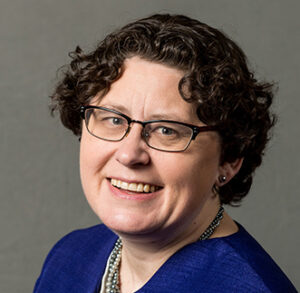
Elizabeth A. Clark is Associate Director of the International Center for Law and Religion Studies and the lead organizer of the Center’s Annual International Law and Religion Symposium. The following is an edited summary of her remarks given during the closing session of the 29th Annual Symposium, 4 October 2022.
My Enemy, My Brother
A few years ago, I watched a short documentary called My Enemy, My Brother (2015), which relates a true story that begins with a surprising incident during the Iran-Iraq war.
As most of us remember, the Iran-Iraq war was a devastating and brutal conflict that lasted from 1980 to 1988. It involved chemical weapons, ballistic missiles, a million casualties on both sides, and at least half a million soldiers who became permanently disabled.
My Enemy, My Brother tells the story of Najah, an Iraqi, who was forced to join the army at age 18. He left his pregnant girlfriend with a promise that he would return and marry her. Najah was severely wounded. He was found by Zahed, a 13-year-old Iranian soldier who had responsibility to kill the wounded and bury the dead Iraqis in mass graves.
The young Zahed found Najah badly wounded and bleeding. He saw something in Najah’s pocket, reached in, and took out a small Qur’an, which had been given to Najah by his mother and had a picture of his girlfriend and son whom he left behind.
In that instant, Zahed explains, the wounded Iraqi became a human. So Zahed spontaneously decided to hide Najah instead of killing him. Najah ended up spending 17 years in Iranian prison camps, but he survived.
Zahed also spent two years in a prison camp, but in Iraq. He came home to find that his parents had made a grave for him and then moved to another province. He drifted, eventually became a seaman, and moved to Vancouver, Canada. He suffered from horrible depression and at one point decided he wanted to die by suicide.
A roommate persuaded Zahed to go to a meeting of the Vancouver Association of Survivors of Torture. When he did, he saw a man who had brought his brother there. This man looked Iranian, so Zahed struck up a conversation. The two men realized they had indeed both fought in the Iran-Iraq war, but on opposite sides, and had both been prisoners of war. As they continued talking, they eventually realized that the man who had brought his brother to the meeting had been the 18-year old Iraqi soldier with the Qur’an and photo of his family whom Zahed had saved.
Najah, the Iraqi who had been saved, became emotional. He said, “We are like brother[s] now, and we are real brother[s].” In the film, Najah describes how it was now his turn to save Zahed—how he took him home and tried to support him through his challenges with depression.
Zahed, who had engaged in an act of mercy as a 13-year old soldier, explained, “When I met Najah, he was catching my hand from darkness and mov[ing] me to light. He was showing me the way. I never thought that one day one Iraqi [was] going to be part of my destiny, part of my life, part of my body, part of my memory. This time he helped me.”
Peace on Earth
How can the darkness, the despair, the desolation that is war, conflict, and hatred ever become peace? How can enemies ever be brothers?
Opening our eyes and seeing the challenges in our world is daunting. We often feel like the narrator in a poem by the American poet Henry Wadsworth Longfellow, who hears church bells pealing on Christmas day but only sees irony because the world is chaos:
And in despair I bowed my head;
“There is no peace on earth,” I said;
“For hate is strong
And mocks the song
Of peace on earth, good will to men!”
Then pealed the bells more loud and deep:
“God is not dead, nor doth He sleep;
The wrong shall fail,
The right prevail,
With peace on earth, good-will to men.”
Religion and Faith Communities Embody Our Hope
Religion embodies our hopes for transformation, for forgiveness, for truth and justice, for reconciliation, for mercy.
We need each other. We need our faith communities. We need inspired reminders that we are all brothers and sisters, that mercy is possible, and that “The wrong shall fail, / The right prevail, / With peace on earth, good-will to men.”
I close with some of the timeless words U.S. President Abraham Lincoln uttered on the eve and at the close of my country’s bloodiest conflict—the horrific Civil War that pitted family members against each other. In his two inaugural addresses, Lincoln pled with his fellow citizens on both sides, saying,
We are not enemies, but friends. We must not be enemies. Though passion may have strained it must not break our bonds of affection.[1]
With malice toward none with charity for all with firmness in the right as God gives us to see the right let us strive on to finish the work we are in to bind up the [world’s] wounds, . . . to do all which may achieve and cherish a just and lasting peace among ourselves and with all nations.[2]
We are grateful that you share our efforts for a just and lasting peace in all our countries and in the world.
[1] Abraham Lincoln, First Inaugural Address, delivered 4 March 1861.
[2] Abraham Lincoln, Second Inaugural Address, delivered 4 March 1865.
